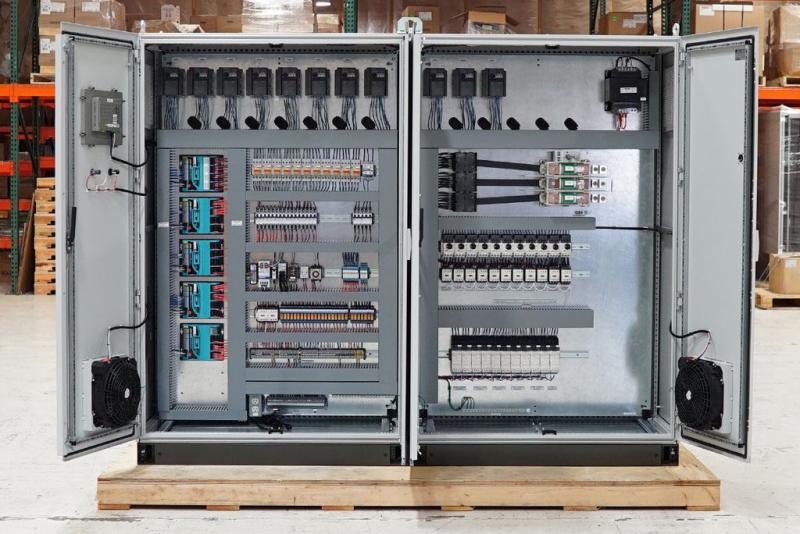Get Started - Intelligent Motor Control Centers (IMCCs)
Traditional Motor Control Centers (MCCs) are centralized panels that house the control and protection devices for multiple motors within an industrial facility. IMCCs take MCCs to the next level and bring the following benefits:
- Enhanced Monitoring and Diagnostics: IMCCs are equipped with intelligent devices like smart motor controllers or protection relays that collect a wealth of real-time data on motor health, power consumption, and operating conditions.
- Predictive Maintenance: The detailed data provided by IMCCs allows operators to analyze trends, identify potential issues, and implement predictive maintenance strategies, reducing unplanned downtime.
- Remote Control and Configuration: Intelligent components in IMCCs can often be monitored and controlled remotely, offering greater flexibility and quicker response times.
- Integration with Automation Systems: IMCCs typically communicate with higher-level automation systems (PLCs, DCS, or SCADA) via standard industrial communication protocols (Modbus, Profibus, Profinet, etc.). This integration enables centralized monitoring of motor status, energy optimization, and more efficient process control.
Key Components of an IMCC

- Smart Motor Controllers/Protection Relays: These form the core of an IMCC. They monitor parameters like current, voltage, temperature, vibration, and power factor, providing valuable insights into motor health.
- Communication Modules: Facilitate the exchange of data between the IMCC components and the broader automation system.
- Human-Machine Interface (HMI): Localized HMIs on IMCC panels may be used for on-site monitoring and control.
- Traditional MCC Components: IMCCs still house essential elements like circuit breakers, contactors, variable frequency drives, and other motor control and protection devices.
Applications of IMCCs
- Critical industrial processes: Where downtime is costly (e.g., manufacturing, petrochemical, water treatment).
- Facilities with numerous motors: IMCCs offer greater visibility and control.
- Remote or difficult-to-access locations: Remote monitoring and control capabilities become highly advantageous.
- Energy-conscious operations: IMCCs help optimize energy use and implement energy-saving strategies.
